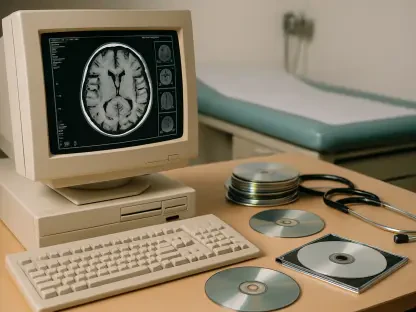Amid the complex dynamics of the healthcare industry, recent developments spotlight a promising growth trajectory for health tech investments fueled by artificial intelligence (AI). As general healthcare investment saw a contraction earlier this year, health tech has defied the trend, raising an unprecedented $8.2 billion across the U.S. and Europe. This surge underscores AI’s pivotal role in overcoming industry challenges such as macroeconomic fluctuations and regulatory uncertainties, positioning AI as a cornerstone in modern health tech development.
Context and Relevance of AI in Health Tech
In the ever-evolving landscape of health tech, AI has transitioned from theoretical musings to indispensable tools. This transformation has roots in the shifting priorities within healthcare, as emerging technological innovations continue to reshape the industry’s landscape. Over the years, these elements laid the groundwork for health tech’s recent success, allowing it to maintain resilience against broader economic challenges. Understanding these factors provides essential context for stakeholders seeking to navigate the growth potential and challenges of this sector.
Transformative Trends and Projections
AI-Enhanced Efficiency in Health Tech Operations
With AI’s unprecedented rise, administrative and operational efficiencies have been brought to the forefront of health tech progress. Streamlined back-office operations led to profitable outcomes and contributed significantly to the staggering $8.2 billion funding surge. While AI offers numerous benefits, the integration process presents some hurdles, including sophisticated implementation costs and complexities that necessitate careful planning and resource allocation.
Impact of AI on Mergers and Acquisitions
AI has not only improved operational efficiencies but also ignited vibrant mergers and acquisitions activity in health tech. Stakeholders ranging from venture-backed firms to traditional investors have fueled this dynamic, transforming investment landscapes. The significant role of AI is evident when compared to non-traditional investment assets, although awareness and navigation through regulatory corridors remain pressing necessities for all engaged parties.
Regional Differences in AI Adoption
The marriage between AI and health tech yields varied results across different regions. In Europe, where unique regulatory frameworks exist, AI integration exhibits a different pace and focus compared to the U.S. For instance, AI-driven diagnostics have revolutionized certain market niches, amplifying their complexities and adding layers to investment decisions. Addressing common skepticism and ethical concerns concerning AI is crucial to smoothing out these disparities and opening up more uniform growth pathways.
Future Considerations for Health Tech and AI
With AI at the helm, a plethora of novel applications promise to continue shaping health tech’s future beyond its current goals. Anticipation grows that economic policy revisions and relentless technology advancements will redefine the investment horizon over the coming years. Experts predict that AI will sustain its role as a fundamental driver of innovation, paving the way for transformative health tech developments that once seemed speculative.
Strategic Takeaways for Future Growth
As AI redefines the investment landscape in health tech, the need for strategic adaptation becomes paramount. It is imperative for businesses to harness AI’s efficiency, thereby developing sustainable models that can withstand the ever-present industry challenges. Forward-thinking investors can gain an edge by leveraging these insights to foresee market shifts, positioning themselves advantageously to capitalize on burgeoning opportunities in this rapidly evolving field.
Reflecting on Health Tech’s AI-Driven Evolution
Throughout the analysis, AI’s substantial and far-reaching contributions to health tech are evident, underlining its transformative influence across the sector. While the field faced diverse uncertainties, AI-fueled investments and strategic mergers have ushered in a decisive, promising outlook, offering a route worth exploring for growth-oriented strategies. In retrospect, the future of health tech hinges on recognizing and embracing the enduring impact of AI, laying the foundation for continued innovation and advancement.









